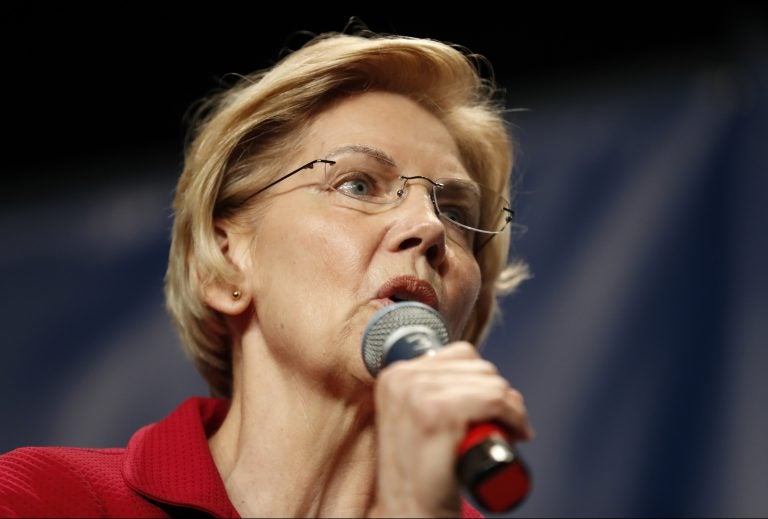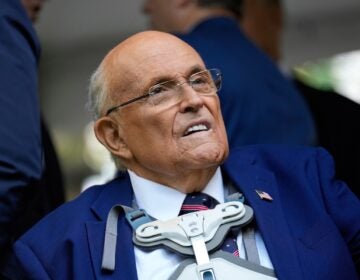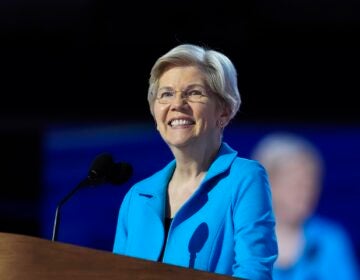The misogyny factor: Are we still ‘not ready’ for a female president?
Warren is running one of the most substantive campaigns in memory. Her detailed policy prescriptions are well-articulated in everyday language.

Democratic presidential candidate Elizabeth Warren speaks during the Iowa Democratic Party's Hall of Fame Celebration, Sunday, June 9, 2019, in Cedar Rapids, Iowa. (AP Photo/Charlie Neibergall)
During the summer of 2016, when Hillary Clinton seemed poised to win the presidential election, I discussed her allegedly bullish prospects with a savvy female veteran of Democratic politics. I was surprised when she shook her head and voiced dread about what would happen in November. She insisted that misogyny would be a key factor in the race, that hostility toward the idea of a woman president was seriously under-reported, and that Hillary would suffer as a result. My basic response was, “Nah.”
I recalled that episode this weekend while parsing the latest poll numbers on the 2020 Democratic race. Granted, it’s still early, and the numbers of fungible. But what stood out, in this CBS News survey of likely Democratic primary voters in New Hampshire and South Carolina, a survey that confirms a pattern seen in all recent surveys, is a broad reluctance to support the female presidential candidates.
Democratic voters, when queried by the press, insist that they are not hostile toward the women; heck, they’d be happy to nominate a female Democrat if they felt she was electable. But they’re worried that a large number of other voters – white men, in particular – would be hostile, and that therefore the women candidates are not electable. As a female Iowa Democrat, an Elizabeth Warren supporter, recently told NPR, “I think there’s a lot of men out there that would never vote for a woman. I hate to say that, but I think that.”
The CBS News numbers are striking. Of the top-10 candidates running in the key New Hampshire primary, male candidates garner 71 percent of likely voter sentiment. Of the top 10 running in South Carolina, another key early contest, the male candidates get 78 percent. This, despite the fact that four of the women in the race – Warren, Kamala Harris, Amy Klobuchar, and Kirsten Gillibrand – are U.S. senators with solid credentialed experience.
The heavy male tilt can be partly attributed to the fact that Joe Biden and Bernie Sanders are universally known; Biden is viewed as a “safe” choice,” and Sanders’ impassioned followers are unshakable. Nevertheless, the misogyny factor is very real – according to an international survey released last November, only 52 percent of Americans (including a mere 45 percent of men) say they’d feel “very comfortable” with a woman in the White House – and Warren’s current surge in the race may well force Democratic voters to reckon with it.
Warren is running one of the most substantive campaigns in memory. Her detailed policy prescriptions are well-articulated in everyday language, and she’s pounding a theme that many Democrats believe is long overdue: the urgent need to build a moral economy that narrows income and class disparity. She has soared into the top tier, and she’s crowding Sanders in a number of early-voting primary states (most recently, Nevada). But at a time when ousting Donald Trump trumps everything else, the fear persists that Warren, or the other credentialed women, would wind up like Hillary. Therefore, safe equals male.
Or perhaps too many Democrats are needlessly suffering from Hillary PTSD. One can argue that Hillary had weaknesses that were uniquely her own (including three decades of hostility toward the Clintons), and that it’s nuts to broadly dismiss all female presidential candidates based on what happened to one nominee (who, by the way, won more votes than any white man in history). A trio of political scientists, authors of “Identity Crisis,” a book on the 2016 election, were surely correct when they concluded last year that Hillary “was more hurt by gender than she was helped,” and that the ’16 election “appeared to activate modern sexism, especially among white men,” but it’s arguably wrong to assume that henceforth all women would suffer her fate.
Alas, that fear is rampant. One seasoned Democrat tells me that while he’d happily vote for Warren, he thinks that lots of other guys – swing voters in the general election – would not vote for her, because “when they listen to her, they probably hear the high school teacher who hectored them in the classroom.” Therefore, he thinks it’s too risky to nominate her.
Kate Manne, an assistant professor of philosophy at Cornell University and author of a book on misogyny, has a name for that kind of attitude. She calls it “pragmatic defeatism.”
And there’s only one way to defeat it. If Democratic voters come to believe that Warren (or one of the other women) has the best qualifications and agenda, they should support her. In other words, they should stop over-thinking the “electability” factor. Eighteen months before the 2008 election, it was widely assumed that Barack Obama was not electable, because of his race. And eighteen months before the 2016 election, Donald Trump was deemed so unelectable that he stood at one percent in the Republican polls, because of his dearth of credentials.
The lesson: If Democrats vote en masse for a woman because they like her most, they can make her electable. The woman who lost in ’16 won nearly three million more votes than her opponent. There’s no reason why a woman can’t do better next time.
—
Trump, in his ABC News interview (this quote is real): “Abraham Lincoln was treated supposedly very badly. But nobody’s been treated badly like me.”
John Wilkes Booth: “Say what?”
WHYY is your source for fact-based, in-depth journalism and information. As a nonprofit organization, we rely on financial support from readers like you. Please give today.




